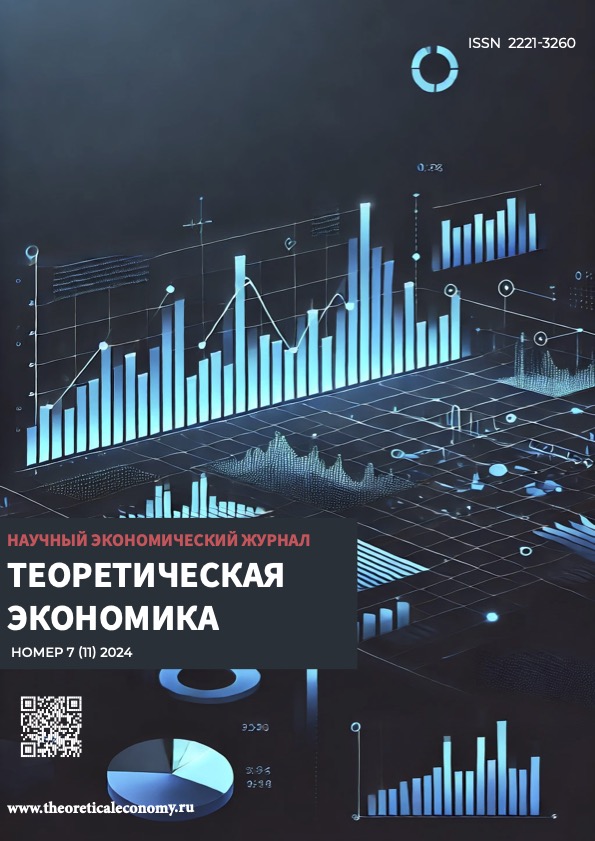Sankt-Peterburg, St. Petersburg, Russian Federation
Associacii chastnyh klinik Sankt-Peterburga
Sankt-Peterburga, St. Petersburg, Russian Federation
Sankt-Peterburg, St. Petersburg, Russian Federation
The article discusses the use of medical terms in economics. Within the framework of the stated objective, a brief historical excursion into the use of medical metaphors and analogies as evidence and examples in economic theory is given. Often the appearance of medical analogies and metaphors in economics is explained by anthropomorphism - the attribution of human qualities to surrounding objects and phenomena. This also happens with words that undergo semantic changes, while remaining the same in expression. The process of transformation of modern economic terms goes both in the direction of the future and the past, since the transfer of a term is successful only when it is understandable to a large number of specialists in the recipient science. The need to use medical methods in economic research is especially clearly seen in the use of psychological approaches to nonstandard human behavior in the modern interpretation of neoclassicism, supplemented by behavioral economics. The conclusions of the article are that psychological models and their medical interpretations and experiments in economic management objectively cannot claim the level of strict evidence of a similar medical diagnosis, but economic theory, proposing solutions in the field of economic policy, should not abandon medical interpretations of experiment.
medical metaphors and analogies, experimental methods, behavioral economics, economic psychology
1. Akerlof Dzh. A., Shiller R. Dzh. Spiritus Animalis, ili Kak chelovecheskaya psihologiya upravlyaet ekonomikoy. M.: Yunayted Press, 2010. S.169
2. Aristotel'. Sochineniya. M.-L.: Izd-vo Akademiya, 1937. S.127.
3. Druker P. Survey of Time Preference, Delay Discounting Models // Judgment and Decision Making. 2013. Vol. 8. No. 2. P. 116–135
4. Blagih I.A., Gazizullin N.F., Protasov A.Yu., Gazizullin T.N., Malyushin I.I. Transformaciya sovremennoy rossiyskoy ekonomiki i zadachi nacional'noy politekonomii / Problemy sovremennoy ekonomiki. 2022.№3(83). S. 250-254.
5. Blagih I.A, Bulah E.V. O vzaimosvyazi ekonomicheskogo analiza s istoriey i evolyuciey//Problemy sovremennoy ekonomiki. Evraz.mezhdunarodnyy nauchno-analitichesk. zhurnal, 2014. № 2. S.186
6. Avtonomov V.S. Model' cheloveka v ekonomicheskoy nauke. — SPb.: Ekonomicheskaya shkola, 1998. — 229 s.
7. Kaneman D. Dumay medlenno... reshay bystro / per. s angl. M: AST, 2016. S.202.
8. Blagih I.A., Aliev Sh.I., Bulah E.V. Modeli i tendencii razvitiya gosudarstvenno-chastnogo partnerstva vsocial'noy sfere //Problemy sovremennoy ekonomiki. Evraziyskiy mezhdunarodnyy nauchno-analiticheskiyzhurnal.2012. №4.S.203.
9. Pashkus V.Yu., Pashkus N.A. Strategicheskiy marketing. Uchebnik dlya vuzov. M. Yurayt, 2022. // https://urait.ru/book /strategicheskiy-marketing-537104 (data obrascheniya – 21.03.2024)
10. Tinbergen, j. Advances in Prospect Theory: Cumulative Representation of Uncertainty // Journal of Risk and Uncertainty, 1992. Vol. 5. Iss. P. 297-323.
11. Blagih I.A. I.V. Vernadskiy i razrabotka metodologicheskih problem istorikoekonomicheskoy nauki Vestnik Kievskogo nacional'nogo universiteta im. T. Shevchenko. Seriya: Ekonomika. № 2. 2010. S. 29-41
12. Blagikh I. The World Academic Communitz Razs Hoage to a Great Russian Economist Herald of the Russiaa Academz of Sciences. Vol. 62. 1992. P.34-41.
13. Gayat I., Shmeidler D. Cumulative Utility and Consumer Theory // International Economic Review. 1997. Vol. 38. No. 4. P. 737-761
14. Hamermesh D. Six Decades of Top Economics Publishing: Who and How? // Journal of Economic Literature, 2013. Vol. 51. Iss. 1. P. 162-172.
15. Blagih I. A., Gazizullin N. F., Protasov A. Yu., Gazizullin T. N., Malyushin I. I. Transformaciya sovremennoy rossiyskoy ekonomiki i zadachi nacional'noy politekonomii// Problemy sovremennoy ekonomiki, № 3 (83). 2022. S.201.
16. Brynjolfsson E., Collis A. How Should We Measure the Digital Economy? Focus on the value created, not just the prices paid [Electronic resource]. – Available at: https://hbr.org/2019/11/how-should-we-measure-the-digital-economy (date of access: 29.09.2023).
17. General Assembly. High-level Week 2023 [Electronic resource]. – Available at: https://www.un.org/ ru/high-level-week-2023 (date of access: 29.09.2023).
18. Mason P. Postcapitalism. A guide to our future. London : Allen Lane, 2015.
19. The United Nations. The 17 GOALS [Electronic resource]. – Available at: https://sdgs.un.org/goals (date of access: 29.09.2023).
20. World Development Indicators [Electronic resource]. – Available at: https://data.worldbank.org/ indicator/NY.GDP.MKTP.KD.ZG (date of access: 30.09.2023).
21. World Population Review [Electronic resource]. – Available at: https://worldpopulationreview.com/ countries (date of access: 30.09.2023).
22. GSR‐17 Discussion paper. Social and economic impact of digital transformation on the economy [Electronic resource]. – Available at: https://docs.yandex.ru/docs/view?tm=1696577937&tld=ru&lang=en& name=Soc_Eco_impact_Digital_transformation_finalGSR.pdf (date of access: 30.09.2023).
 This work is licensed under Creative Commons Attribution-NonCommercial-NoDerivatives 4.0 International
This work is licensed under Creative Commons Attribution-NonCommercial-NoDerivatives 4.0 International


















